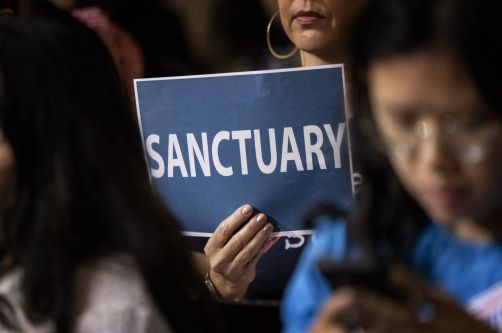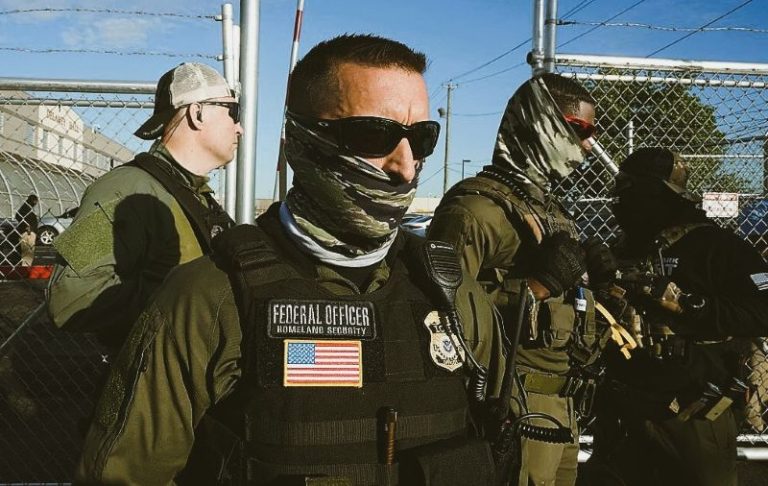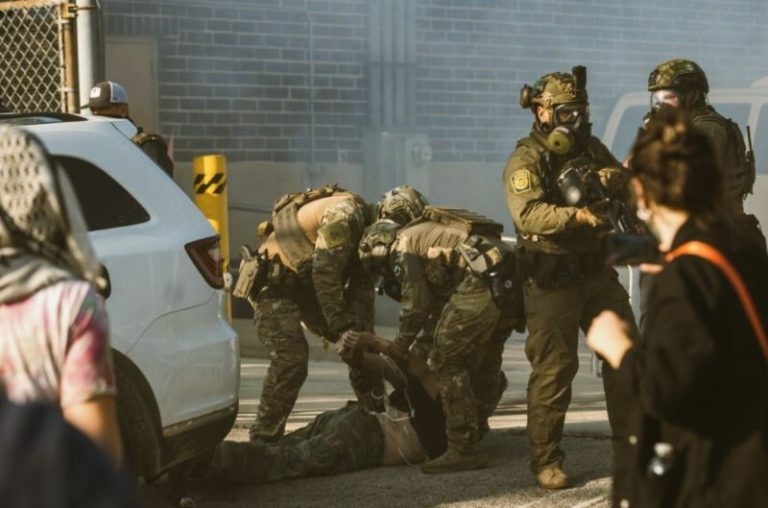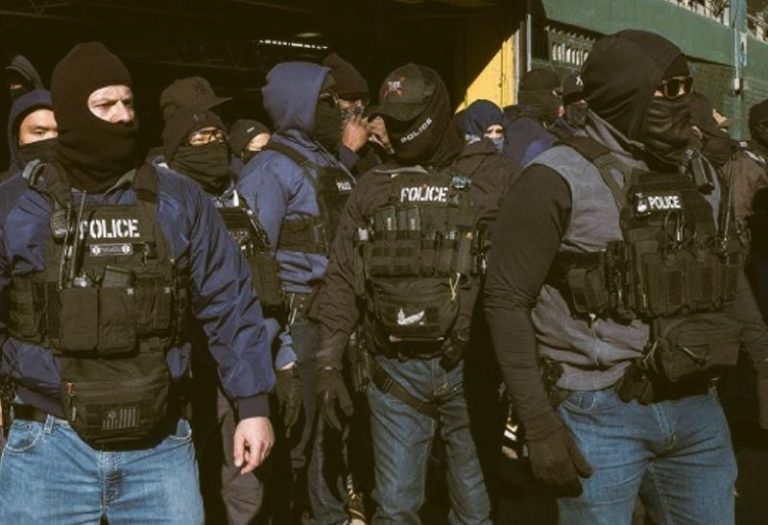

Sanctuary churches are doubling down on their work in spite of him.

By Sierra Lyons
Multimedia Journalist
“Prism is an independent and nonprofit newsroom led by journalists of color. We report from the ground up and at the intersections of injustice.”
Hours after his Jan. 20 inauguration, President Donald Trump rescinded a 2011 policy that limited where U.S. Immigration and Customs Enforcement (ICE) agents can make arrests. Advocates say safe havens, like houses of worship and schools, have already become increasingly vulnerable, with raids reported across the country.
Throughout history, houses of worship have provided safe harbor to marginalized populations in the U.S., including runaway enslaved people, houseless individuals, and refugees.
For many faith leaders across denominations who have dedicated their work to defending vulnerable members of the community, Trump’s targeting of immigrants only motivates them to continue their fight. Sanctuary churches, in particular, are doubling down on their work.
“We’re willing to house people, and we’re gathering information so that people know their rights,” said Rev. Michael Woolf, senior minister at Lake Street Church of Evanston in Illinois and the author of “Sanctuary and Subjectivity: Thinking Theologically About Whiteness in Sanctuary Movements.” “We’re willing to put ourselves on the line—me, in particular—for this group of people.”
“I wouldn’t let Jesus get deported,” he continued, “so I’m not going to let other people get deported just for the simple fact that they’re here in this country, and they didn’t have the right paperwork.”
Lake Street Church is about 30 minutes north of Chicago, one of the major “sanctuary cities” in the nation. For over a decade, the church has housed a family and in that time, helped them reunite with other family members and obtain temporary status. Woolf, who began his role at the church in 2019, and his leadership team are expanding their aid to offer short-term emergency shelter.
Lake Street Church has acted as a safe harbor church since 2014 and was one of many congregations involved in the New Sanctuary Movement of the 2010s.
The New Sanctuary Movement is a coalition of congregations that mirrors the original Sanctuary Movement of the 1980s, which emerged in response to the federal government denying help to Central American refugees who were fleeing political persecution and violence. At the time, President Ronald Reagan deemed asylum-seekers from mostly Guatemala and El Salvador as “economic migrants” who were fleeing poverty rather than political oppression. A coalition of more than 500 congregations stepped up to aid and house thousands of refugees.
Though things look bleak on the federal level as Trump is working diligently to deliver on his campaign promise to “carry out the largest deportation operation in American history,” Woolf said he is encouraged by the on-the-ground work happening at the local level to leverage resources to help those in need.
“For a lot of people, this is about their religion. And for the immigrants and the asylum-seekers themselves, it’s in religious terms. It’s that they’re the beloved of God and they’re made in the image of God, and there’s nothing that can take their inherent dignity away. We’re not going to let people take their dignity away,” Woolf said. “You’re going to see a lot of religious groups who are not going to simply let Trump’s policies dehumanize immigrants on their watch.”
Trump is already facing pushback for undoing the 2011 policy. A group of Quakers represented by Democracy Forward filed a lawsuit against the Department of Homeland Security in January, stating that the policy reversal is an infringement on their religious liberties as it threatens communal worship, which is central to their religious beliefs.
Clergy from other denominations have also spoken up. Notably Episcopal Bishop Mariann Budde addressed the Trump administration directly at the inaugural prayer service. Her pleas for the administration to offer mercy to marginalized groups was met with stoic faces and later a vexed response from Trump on the social media platform Truth Social, but her sermon echoed the sentiments from faith groups nationwide.
“As a community, we believe that everyone is deserving of dignity, a roof over their heads, a sense of safety and love. We believe our leaders should also make decisions based on that,” said Rev. Mira Sawlani-Joyner, minister of justice, advocacy, and change at the Riverside Church in New York City.
Riverside is a justice-centered sanctuary church, working with neighboring organizations such as the Interfaith Center of New York, the Jewish Theological Seminary, the Union Theological Seminary, and the Poor People’s Campaign. The church offers a food and clothing pantry to all members of the community regardless of their citizenship status.
Sawlani-Joyner, like Budde, hopes that government leaders will make decisions with care and consideration for all, especially those already on the margins.
“Our nation was built on the backs of immigrants, of people who weren’t the original stewards of these lands, whether they were brought here by force or they came on their own accord,” Sawlani-Joyner said.
Riverside Church has recently donated hygiene supplies to mutual aid for migrants and has been focused on training to provide asylees with information about their rights if they’re stopped on the street or approached at their homes. Sawlani-Joyner said the training has also allowed members of the organization to better understand how they can refuse entry to the church and know the difference between a search warrant signed by ICE or by a judge.
“My hope is that we see that our thriving is dependent on one another, and when one of us is hurting, we need to work as a collective to help that group, community, or individual thrive once again,” she said. “People are worried, but we haven’t lost hope. We are committed to keep doing the work together.”
Originally published by Prism, 02.12.2025, republished with permission.


